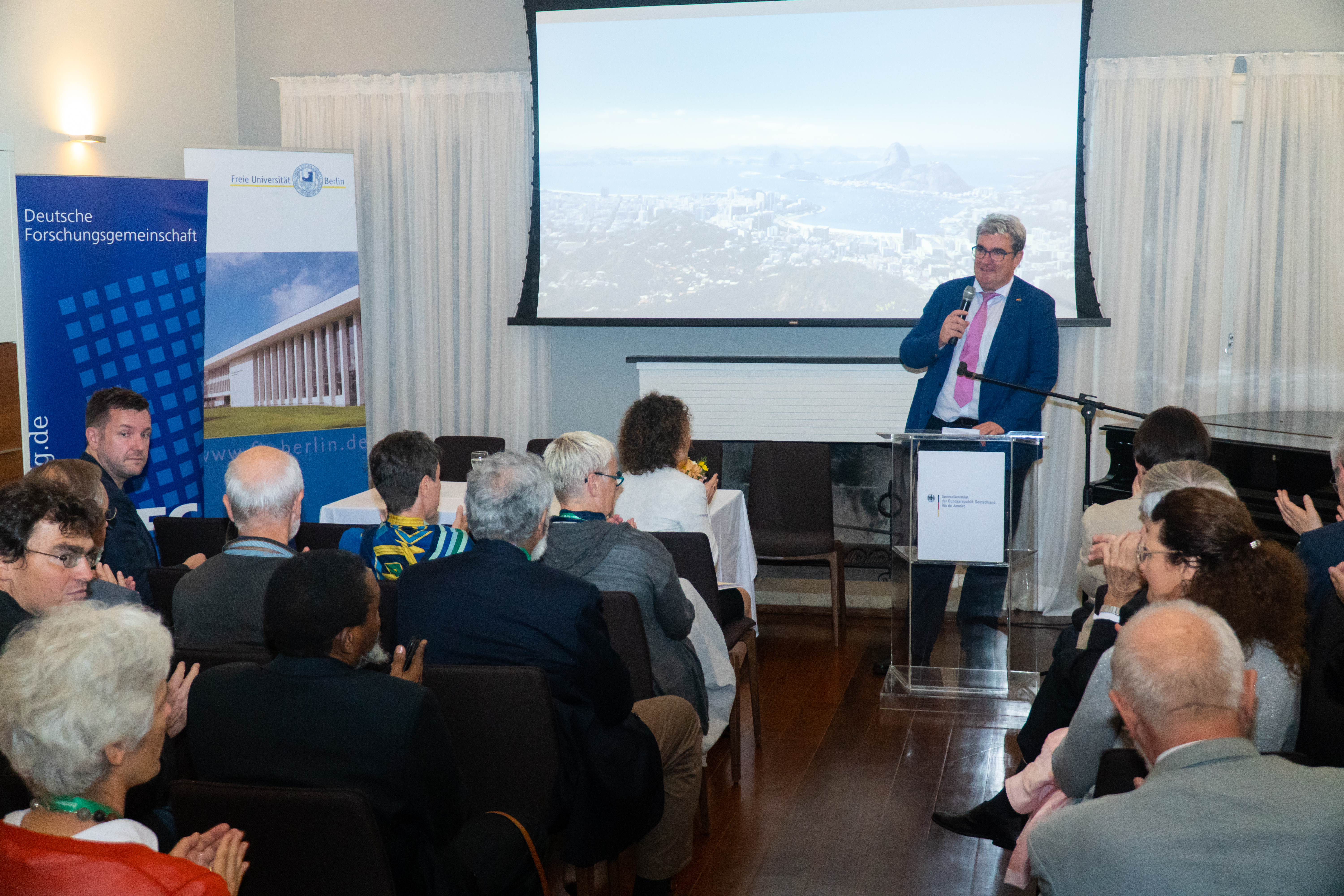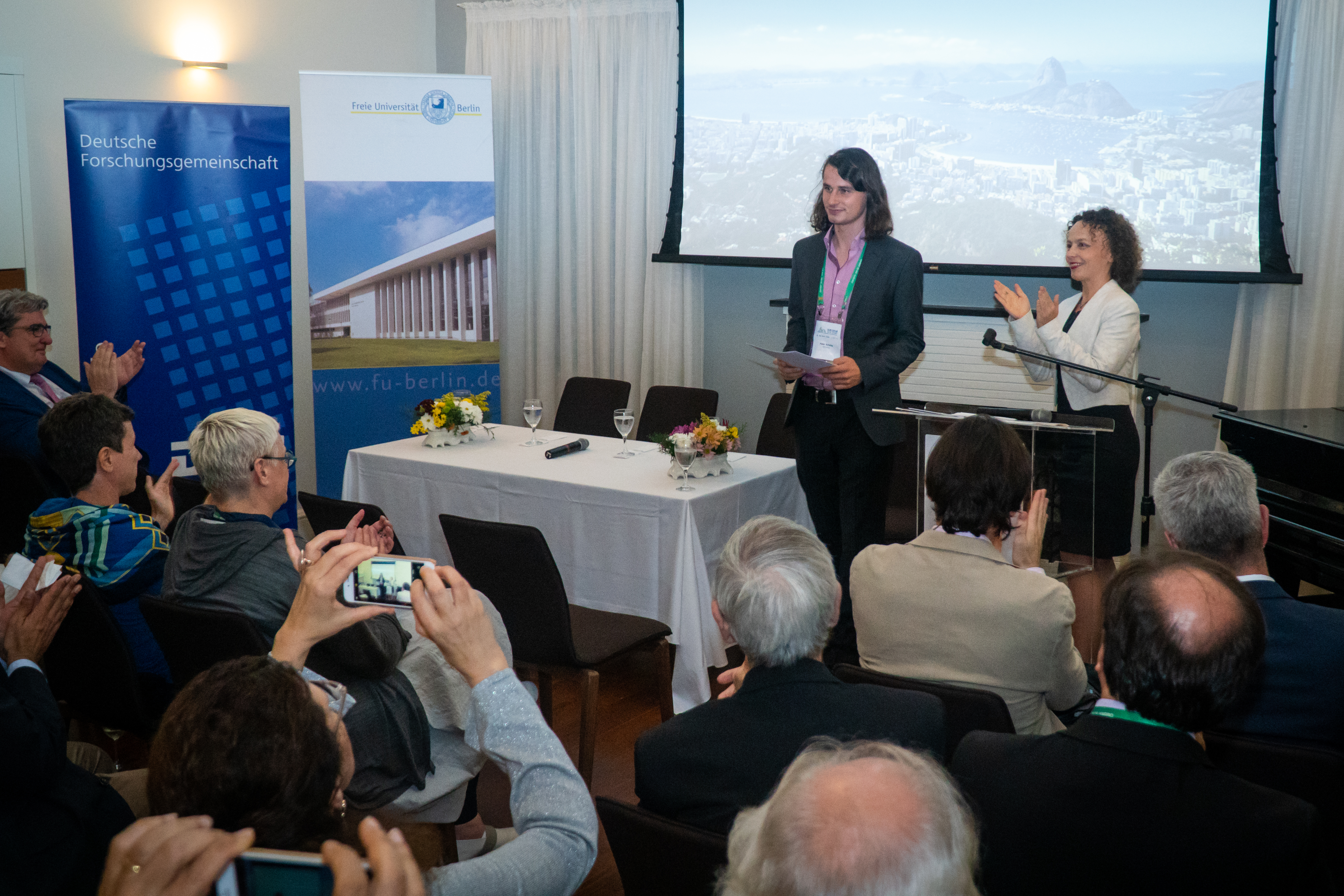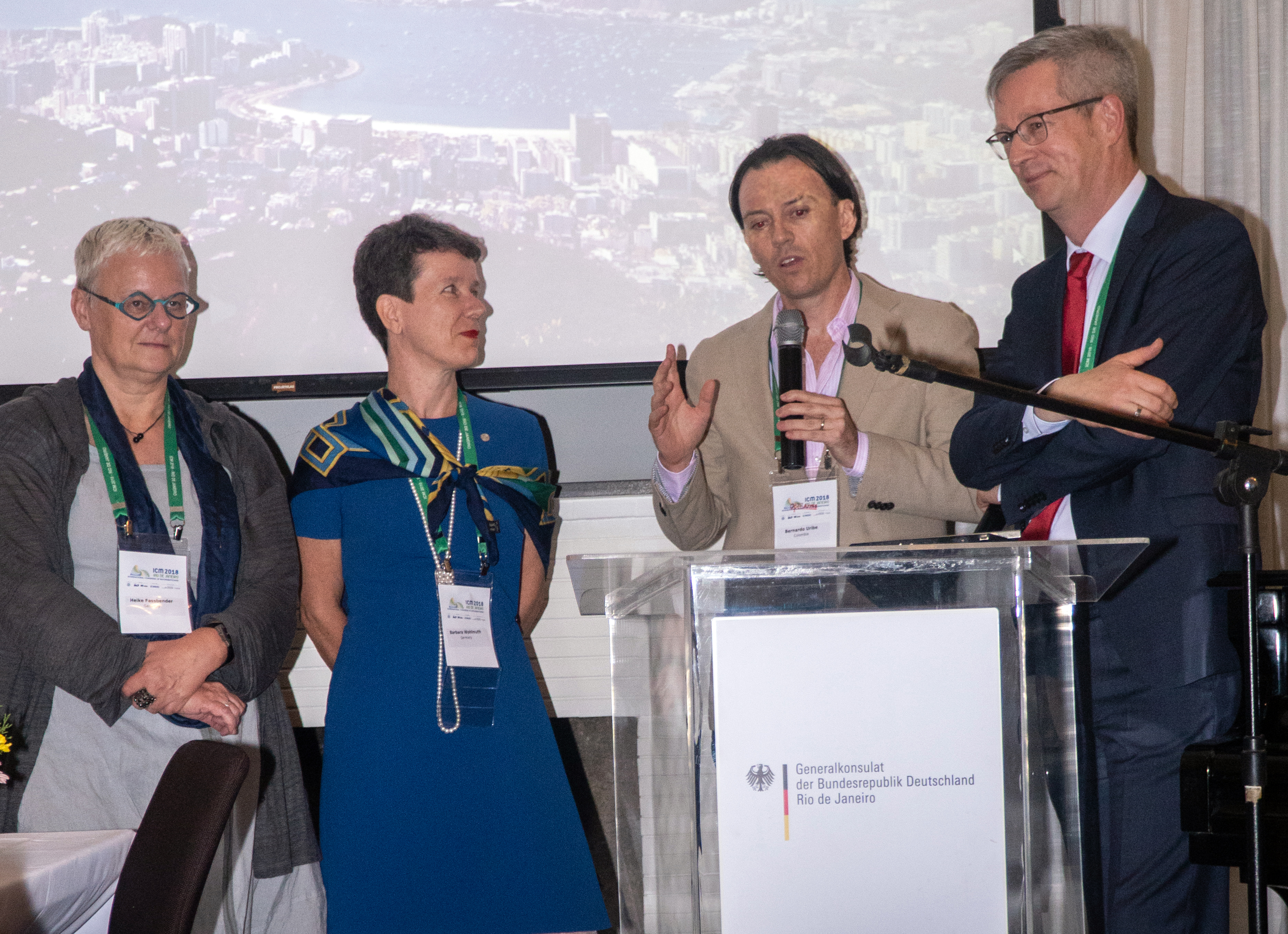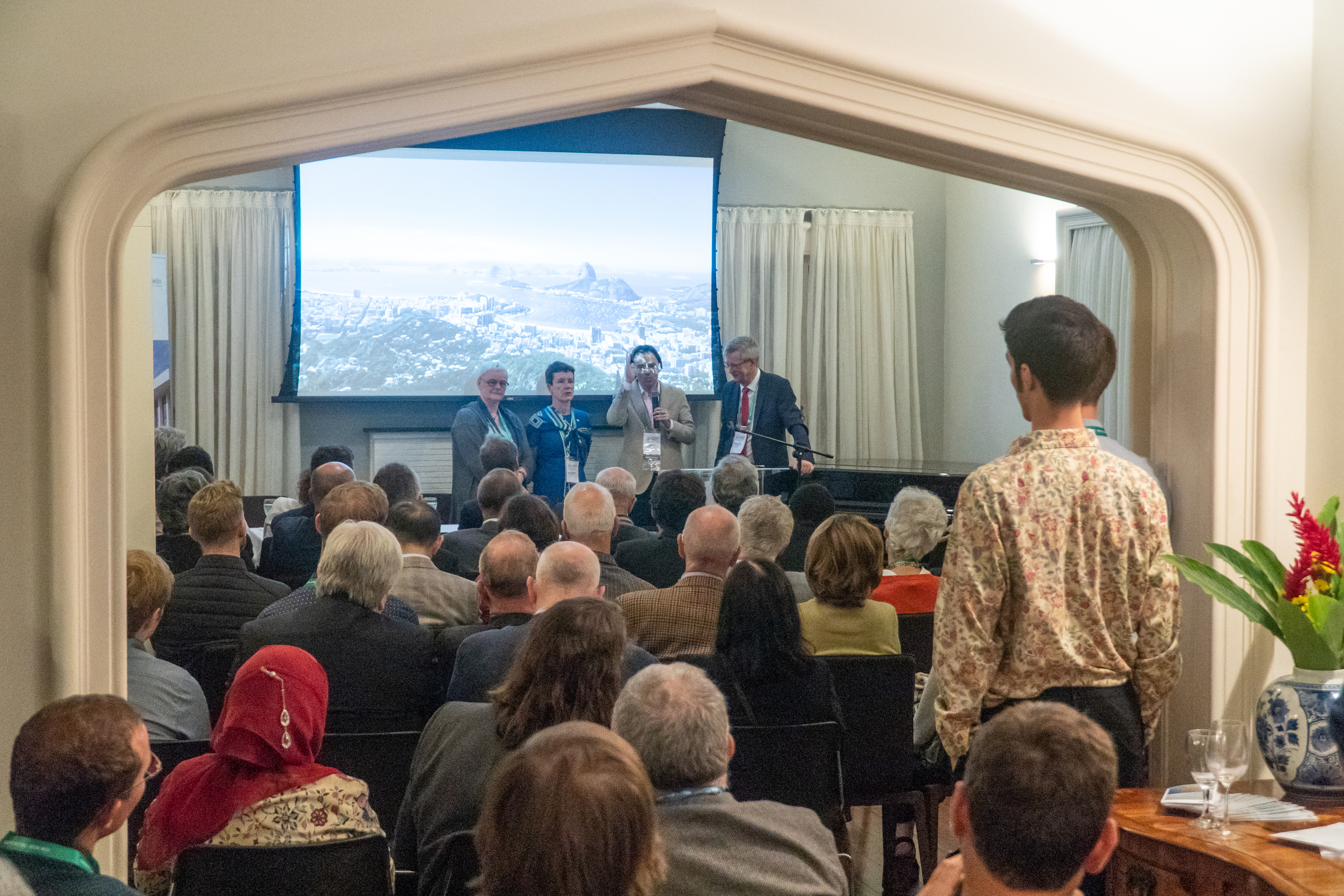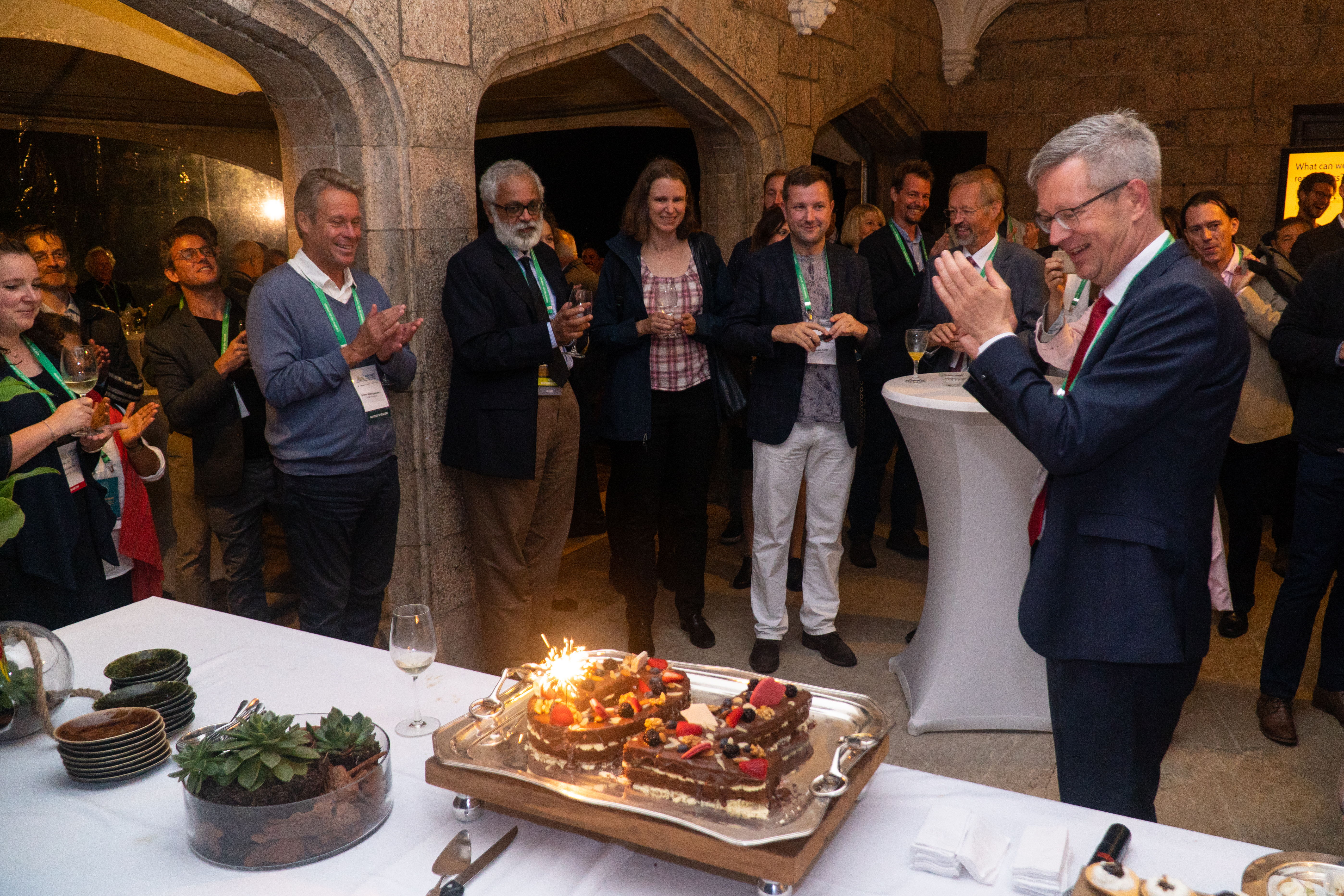DFG Honours Fields Medallist Peter Scholze at Reception in Rio de Janeiro
(22.08.18) Numerous researchers in mathematics and representatives of German universities and other research institutions came together at the invitation of the DFG for a small reception at the residence of the German Consul General in Rio de Janeiro on 2 August. As part of a research discussion about competition and cooperation in mathematics, Prof. Dr. Peter Scholze, who was awarded the Fields Medal during the formal opening ceremony of the International Congress of Mathematicians (ICM), was notably honoured on the evening.
Vice-Consul Johannes Bloos at the opening of the event.
© Ole Lentfer
Dr. Kathrin Winkler, Head of the DFG Office Latin America, congratulated the prizewinner during the opening of the event and presented him with a congratulatory letter from the DFG President, Prof. Dr. Peter Strohschneider. “We are delighted on behalf of Peter Scholze, whom we previously honoured as an outstanding researcher with the Leibniz Prize in 2016, and who belongs to a Cluster of Excellence funded through the Excellence Initiative. This award also serves as an important confirmation of the fact that the university research landscape in Germany still offers outstanding opportunities to encourage talent and scope to pursue new ideas," says Strohschneider.
At 30, Peter Scholze is one of the youngest researchers to be presented with the Fields Medal. He received the award for his outstanding research and fundamental contributions to arithmetic algebraic geometry. In 2012, the University of Bonn, where he also obtained his doctorate, appointed him to one of the chairs of its internationally respected Hausdorff Center for Mathematics at the age of 24. This made him the youngest professor at W3 level in Germany.
In her introductory speech, Winkler emphasised that the ICM had been held in the southern hemisphere for the first time: "In a world of globalisation, research is moving beyond national borders. We must therefore continue to work on making our education and research system more permeable." According to Winkler, a growth in joint publications and bilateral projects between Germany and Latin America funded by the DFG and its partner organisations has been observed in recent years. "This is the result of our long-term partnerships with fund institutions in the region – one of the main duties of our office in São Paulo," summarised the Head of the DFG Office Latin America.
Prof. Dr. Barbara Wohlmuth from the Technical University of Munich, Prof. Dr. Heike Fassbender from Braunschweig University of Technology and Prof. Dr. Carlos Uribe Jongbloed from North University in Colombia, were invited to the subsequent panel discussion on the topic "Mathematics: Between Competition and Cooperation". Mathematician Prof. Dr. Günter Ziegler, a Leibniz prizewinner himself in 2001, led the discussion and encouraged an interesting exchange of personal experiences. As a former senate member of the DFG and now President of the Free University of Berlin, Ziegler wore several hats and was also able to celebrate the 70th anniversary of the Free University on the evening, which historically has an important focus on Latin America and is also represented there by its office in São Paulo.
Both Wohlmuth and Fassbender affirmed that international partnerships in research projects are becoming increasingly important, particularly at the interface to other disciplines such as engineering sciences and other exact sciences. Uribe explained that scientific cooperation is strongly associated with generosity: "Scientific partnerships can only work if you are prepared to share your ideas with others."
Germany will remain an important location for international mathematical research in future: At the annual meeting of the International Mathematical Union (IMU) in São Paulo, the decision was taken to make Berlin the permanent headquarters of the association. What's more, Günter Ziegler was elected to the Executive Committee of IMU, of which mathematical societies from 87 countries are members.
